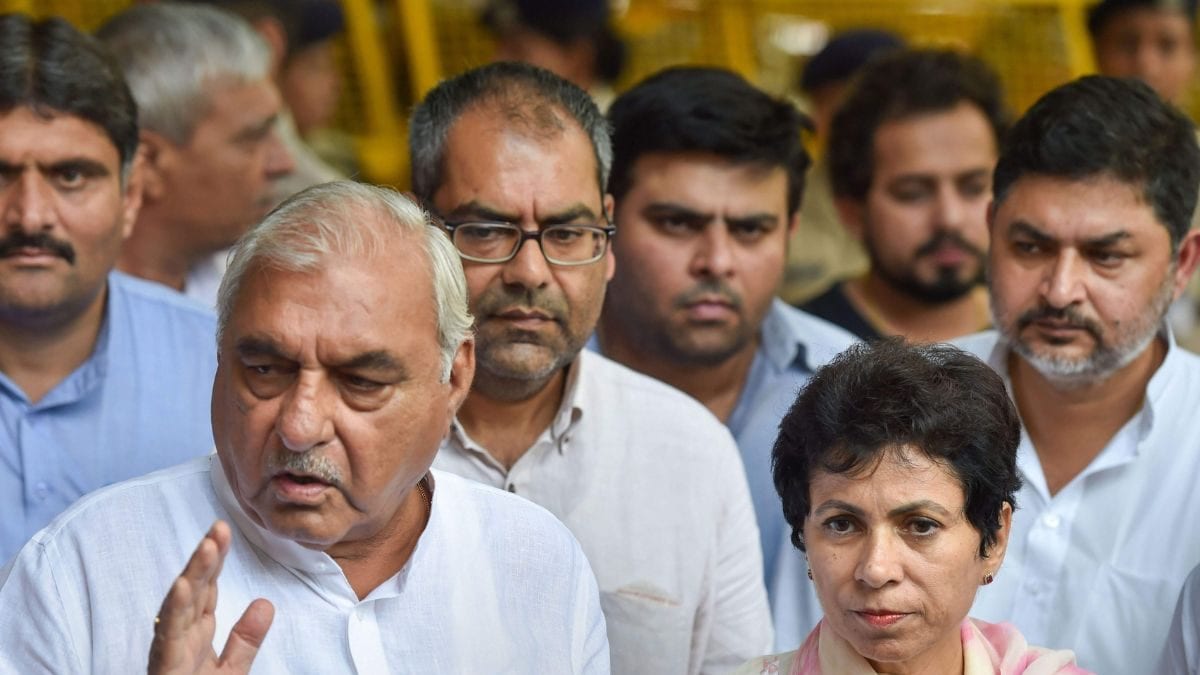The 2019 Haryana Assembly elections witnessed a significant impact of rebel candidates, particularly from the Congress party. The party’s failure to secure a victory can be attributed, in part, to its handling of dissidents, leading to the loss of at least nine crucial seats. This analysis will explore the specific cases of rebel candidates who significantly affected the Congress’s performance and highlight how these incidents impacted the overall election outcome.
The Bahadurgarh Case: A Symbol of Rebellious Triumph
Rajesh Joon, a former Congress member denied a ticket, contested as an Independent from the Bahadurgarh seat and emerged victorious. He garnered a staggering 73,191 votes, securing a decisive margin of 41,999 votes over the second-place candidate. Notably, the sitting Congress MLA, who had initially been considered a strong contender, finished a disappointing third. This singular victory serves as a powerful illustration of the disruptive force unleashed by disgruntled Congress members who chose to fight against their former party.
The Power of Dissent
Joon’s success highlights the power of rebellion in a political system where the party’s dominance is not absolute. By challenging the party’s authority, Joon tapped into a significant reservoir of discontent and disaffection within the electorate. The Bahadurgarh case stands as a testament to the ability of independent candidates to capitalize on internal party conflicts and utilize it to their advantage. It demonstrates the fragility of a party’s hold on power when it fails to address the aspirations of its own members.
The Nine Lost Seats: A Legacy of Rebellion
The case of Bahadurgarh, while striking, is just one instance of the Congress’s setbacks attributed to rebel candidates. A meticulous examination of the results reveals that nine seats could have swung in the Congress’s favor if it had either granted tickets to its discontented members or effectively addressed their grievances. This analysis delves deeper into the specific outcomes of these nine seats.
The Fateful Nine
The rebel candidates’ impact is evident across these nine seats: Bahadurgarh, Pundri, Ambala Cantonment, Tigaon, Uchana Kalan, Badhra, Gohana, Kalka, and Ballabgarh. These are not isolated incidents but a pattern reflecting the consequences of internal party discord. It’s important to note that the independent candidates’ votes, combined with the Congress’s tally, could have tipped the scales in their favor in a significant number of these seats.
Bahadurgarh: A Tale of Two Joons
In Bahadurgarh, the Congress’s loss stemmed from a clash of wills between two Joons: Rajesh and Rajinder. The Congress, in its decision to overlook Rajesh, unwittingly allowed him to rally support and galvanize opposition voters. While the independent Joon secured victory, the sitting MLA, Rajinder Joon, secured a meager 28,955 votes. This defeat demonstrates the powerful ramifications of intra-party dissent, turning the election into a battle between competing factions within the Congress rather than a clear confrontation against its rivals.
The Ambala Cantonment Seat: A Missed Opportunity
The Ambala Cantonment seat represents another case where a rebellion proved detrimental to the Congress. The seat, historically won by the BJP’s Anil Vij, saw an independent challenger, Chitra Sarwara, emerge as the second-highest vote-getter, effectively drawing away potential Congress supporters. The Congress candidate, Parvinder Pal Pari, secured a meager 14,469 votes, finishing third, indicating a loss of faith in the party’s nominee. This outcome illustrates how internal party disputes can weaken the Congress’s electoral prospects, particularly when they are challenged by independent candidates.
The Impact of Rebellion: A Broader Perspective
Beyond these specific cases, the rise of rebel candidates in the 2019 Haryana Assembly elections raises broader questions about the health of the Congress. The party’s internal divisions and its perceived inability to manage dissent are significant challenges. The absence of a strong leadership figure able to unite and effectively lead the party has also played a role. These factors, combined with the strategic choices made in the run-up to the elections, contributed to the Congress’s loss of power in the state.
The Road Ahead: Finding a Way Back to Power
The Congress’s future success hinges on its ability to address these internal challenges. The party must focus on unifying its ranks, establishing clear leadership, and creating a culture that fosters dialogue and consensus-building. The party needs to build a framework to address the concerns of its members, prevent future rebellions, and reclaim its electoral footing. This process requires open communication, honest introspection, and a willingness to adapt to the evolving dynamics of the electorate.
Takeaways:
- The 2019 Haryana assembly election results serve as a stark reminder of the consequences of internal party disharmony, especially in the context of rebels candidates challenging the party’s authority.
- The rebel candidates’ influence was significant, leading to the Congress losing a substantial number of seats that would have otherwise solidified its position.
- The lack of internal cohesion, combined with the party’s inability to adequately address its members’ grievances, has had a profound impact on the party’s ability to effectively compete in the political arena.
- The Congress needs to address its internal discord to rebuild its base and regain its competitive edge in future elections. The party’s success depends on creating a unified front, addressing dissent through effective communication, and fostering a culture of trust and mutual respect within its ranks.




